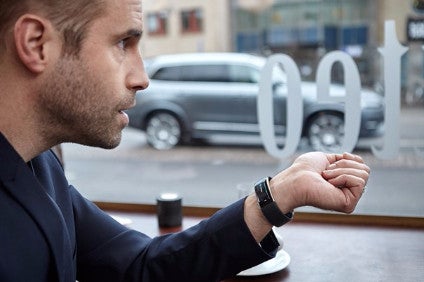
Volvo said at the 2016 CES show in Las Vegas it is working with Microsoft to launch a wearable-enabled voice-control system. Owners will be able to talk to their car using Microsoft Band 2, allowing them to instruct their vehicle to perform tasks including setting the navigation, starting the heater, locking the doors, flashing the lights or sounding the horn via Volvo on Call, and the connected wearable device.
Voice control using the band will be available in Volvo on Call-enabled markets in spring 2016.

Discover B2B Marketing That Performs
Combine business intelligence and editorial excellence to reach engaged professionals across 36 leading media platforms.
Last November, the automaker and software company announced collaboration with the first automotive application of HoloLens technology, claimed to be the world’s first fully untethered holographic computer which could be used in future to redefine how customers first encounter, explore and even buy their car.
Remote voice control using Band 2 is another step in the ambition to jointly develop new automotive technology.
“[We are] intent on making the car experience as easy and convenient as possible by utilising the latest technology in the most relevant and inspiring ways. With voice control, we are only just beginning to scratch the surface of what is possible with digital assistant functionalities,” said Thomas Müller, head of electrics/electronics and e-propulsion at Volvo Car Group.
The automaker recently has begun to focus closely on innovations outside the traditional automotive arena, keen on opening up potential partnerships and new business models.
“When innovating, we are not interested in technology for the sake of technology. If a technology does not make a customer’s life easier, better, safer or more fun, we don’t use it. Let’s face it – who hasn’t dreamed of talking to their car via a wrist-worn wearable?” said Klas Bendrik, the company’s chief information officer.
Microsoft business development chief Peggy Johnson added: “We’re just beginning to understand the potential that technology has to improve driver safety and productivity.”






